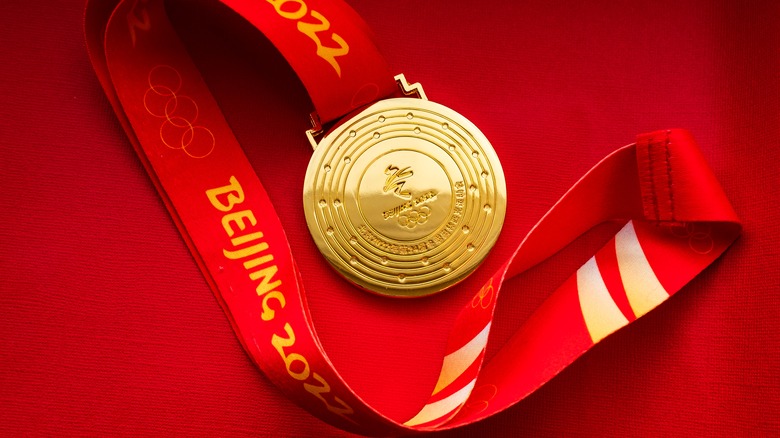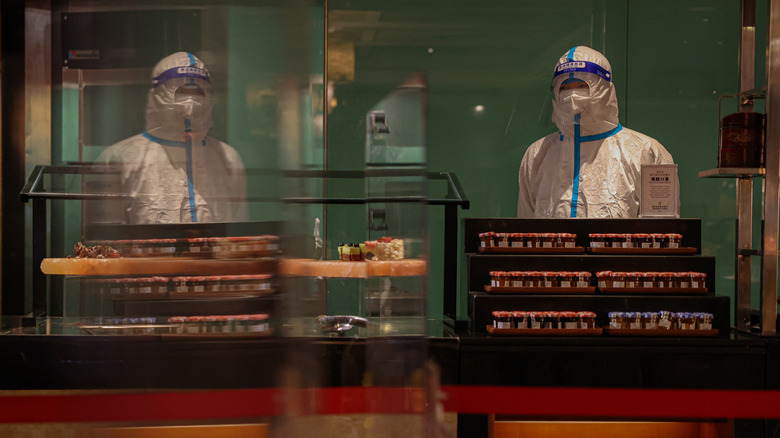Athletes Are Divided On The Food Served At The 2022 Olympics
If you've been following the Beijing Winter Olympics (or, more accurately, what is happening on the sidelines), you'll know one of the most controversial — and most talked-about — parts of this year's Games have been the culinary options on offer in the Athlete's Village. And depending on who you ask, the Games' food choices have been largely hit-or-miss.
The New York Times' surmised that the mixed reviews were driven in part by the pandemic and China's zero-COVID policy, which has kept athletes, coaches, support staff, volunteers, and media within a closed circle. The outlet describes scenes of robots cooking meals and shaking up drinks, and the wariness with which some diners approached everything that was on offer. "In Beijing, the robot-made dishes were precisely cooked — broccoli always crisp, wonton skins always bouncy — but mostly uninspiring," the Times writes.
South Korean speed skater Kim Bo-reum told the Yonhap News Agency that, when she first saw the food on offer at the cafeteria, she wanted to go home. Another member of the same team, Kim Min-sun, said she was giving the food a hard pass, but for safety reasons. China's farmers are known for using banned substances in livestock feed — and a misstep by consuming contaminated meat could see an athlete slapped with a doping-related ban.
Fortunately for the South Koreans, their Olympic Committee provisioned for them by setting up a catering point at a nearby hotel, allowing hesitant or homesick athletes to get Korean meals served in a box.
Several athletes have been happy with the food they've been served in the bubble
But there are those who have embraced living in the bubble and all it had to offer; one of them — Team USA's Tessa Maud gave the meal choices two thumbs up. She tells Insider: "I haven't been finding any issues. The food might be tricky for some people, but there's always something you can eat, something you can find that's going to be better than the cafeteria."
The 18-year old snowboarder says there are options for anyone trying to avoid (or unimpressed with) the cafeteria. "I've been going to the restaurants that you take the bus to, and they're, like, a 10-minute drive. So I've been eating food there as well, and that food is insane — the best Chinese food I've ever had, hands down."
Spanish ice dancers Adrian Diaz and Olivia Smart haven't really left the cafeteria, because they told the Associated Press that they were captivated by hot pot, a cold-weather dish that gives diners a choice of raw ingredients from meats and seafoods to vegetables, which are then cooked in boiling hot broth. Smart says: "I've never had hot pot before and it's one the main dinner things here. That's a new discovery for me."
Another interesting discovery for German figure skater Nicole Schott: white rice. "I like that it's different from all of our European rice. That's actually what I eat every single day," Schott says. And like the South Koreans, if all the rice gets a bit much, she has familiar food from home she can turn to, like porridge and muesli.

